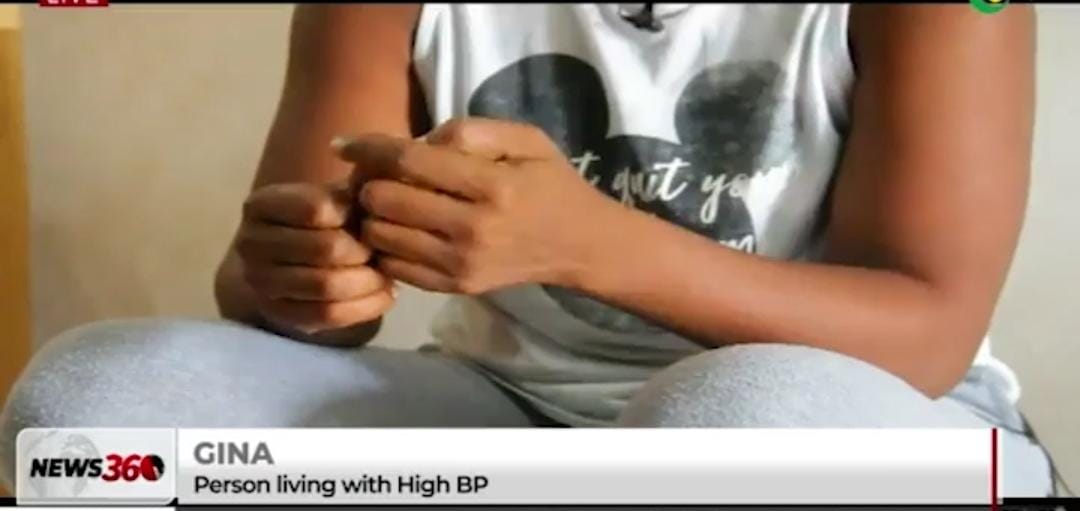Hypertension, also known as high blood pressure, once considered a disease of the elderly, is now increasingly affecting young people.
This trend is alarming, and experts warn that if left unchecked, it could have severe consequences for the country’s health and economy.
Hypertension, or high blood pressure, remains a significant public health concern in Ghana, affecting roughly one in four adults.
Sedentary lifestyles, poor diets, and increasing stress levels are all contributing factors. Studies suggest with less than 35% of individuals aware of their condition, only about 22% of those diagnosed are receiving treatment.
Gina is in her 30s and has been diagnosed with high blood pressure, but she has her own plans for treatment.

‘‘somewhere around November last year I started feeling some pains all over my body with very severe headache. I realized that I was getting weak, so I started going to the pharmacy to check. Every time I check, it gets very high.
Sometimes it’s medium or low or high. I did that for almost two weeks, and it wasn’t improving at all, so I had to go to the hospital. The doctor then said he will put me on medication but I refused and told him I was going to manage it myself, once it starts coming then I take something like paracetamol and I sleep and get ok. I do some other herbs and tea as well.’’ She narrated.
Gina tells me that knowing her triggers is her way of taking control of her health.
‘‘Checking it all the time and it’s not coming down, it gets me worried and unstable so about 3, 4 months now, I haven’t checked it. I don’t want to give myself undue tension. So I’m managing it. Even yesterday I had some headache, I took some para and I felt ok’’. She said.

It is a growing concern, quietly creeping into the lives of Ghana’s youth.
Interestingly, many are unaware of their blood pressure status.
Others, though aware of the consequences, remain unbothered.
The danger is that uncontrolled hypertension can lead to serious health complications, including heart disease, stroke, and kidney damage and death.
Professor Titus Beyuo a medical Doctor has been explaining the triggers of BP.

“Among the youth, it’s common especially in the 30s going to 40s and also particularly more common in men. For everybody, a regular check will be helpful. Just to be sure your BP is not going up because it doesn’t give any sign. But if you can live a healthy life, take a lot of fruit, rest when you should, take a lot of fluid, avoid abuse of pain medication, then your risk of getting hypertension is very low.’’ He said.
According to him, it’s more dangerous to stop taking a BP medication without a doctor’s advice.
‘‘When you develop hypertension in pregnancy, you may be put on medication in the course of that pregnancy. That type of hypertension, when you give birth can disappear completely. But you need to check.
Especially after six weeks of giving birth. Other than that, all other forms of hypertension, unless it is a secondary hypertension, but essential hypertension is which is that there is no known condition or cause of it, you will most likely be on medication for life. No one should stop taking a hypertension medication without consultation. That will be dangerous’’. He warned.
The economic burden of hypertension is also significant which can undermine the country’s development.













